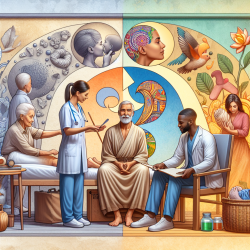Introduction
In the ever-evolving field of speech-language pathology and public health, practitioners are constantly seeking ways to enhance their skills and improve outcomes for their clients. One invaluable resource for this is historical research, which provides insights into the foundational philosophies and methodologies that have shaped current practices. The research article titled "C.-E.A. Winslow and the later years of public health at Yale, 1940-1945" offers a compelling look into the contributions of C.-E.A. Winslow, a pivotal figure in public health, whose work continues to influence contemporary practices.
Winslow's Public Health Philosophy
C.-E.A. Winslow was a renowned professor and chairman of the Yale Department of Public Health. His philosophy emphasized the importance of preventive measures and community-based approaches to health care, which are still relevant today. Winslow's work at Yale from 1940 to 1945, as detailed in the research article, highlights the significance of integrating public health perspectives into clinical practices.
Implementing Winslow's Insights
For practitioners in speech-language pathology, Winslow's emphasis on prevention and community involvement can be translated into several actionable strategies:
- Community Engagement: Collaborate with schools and community organizations to promote awareness and early intervention for speech and language disorders.
- Preventive Screening: Implement regular screenings in schools to identify children at risk for speech and language difficulties, allowing for timely intervention.
- Interdisciplinary Collaboration: Work alongside other health professionals to address the holistic needs of children, recognizing that speech and language issues often intersect with other health concerns.
Encouraging Further Research
Winslow's legacy also serves as a reminder of the importance of ongoing research in public health and speech-language pathology. Practitioners are encouraged to delve deeper into historical research to understand the evolution of practices and identify areas for innovation. By studying past methodologies and outcomes, practitioners can develop more effective strategies tailored to the needs of their clients.
Conclusion
Incorporating historical insights into modern practice is not just about honoring the past; it's about building a better future for the children we serve. By embracing Winslow's public health philosophy, practitioners can enhance their skills and contribute to the development of more comprehensive, preventive, and community-focused approaches in speech-language pathology.
To read the original research paper, please follow this link: C.-E.A. Winslow and the later years of public health at Yale, 1940-1945.










